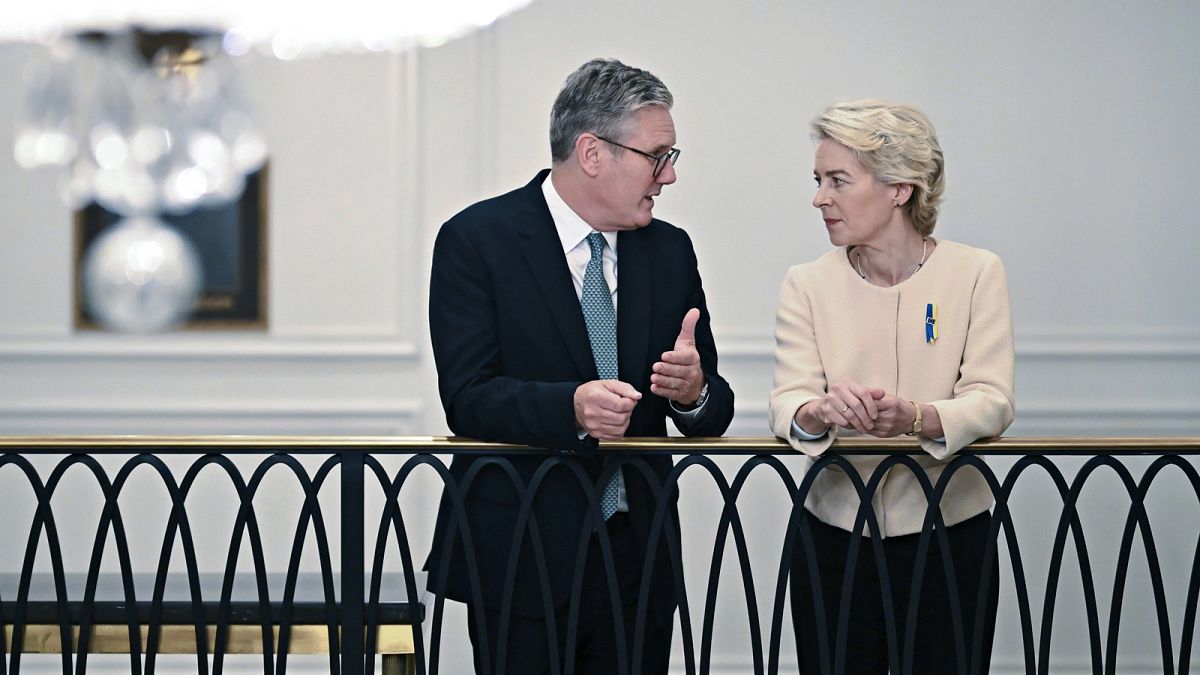Published on
European leaders are voicing alarm over the military attacks launched overnight between Israel and Iran and calling for immediate de-escalation to avoid an all-out war that could spiral across the Middle East and beyond.
British Prime Minister Keir Starmer was one of the first heads of government to react, urging “all parties to step back and reduce tensions urgently”.
“Escalation serves no one in the region. Stability in the Middle East must be the priority and we are engaging partners to de-escalate,” Starmer said.
“Now is the time for restraint, calm and a return to diplomacy.”
His Dutch countepart, Dick Schoof, issued a similar message.
“Alarming attacks in the Middle East,” Schoof said. “The Netherlands calls on all parties to remain calm and to refrain from further attacks and retaliation. In the interest of stability in the region, immediate de-escalation is necessary.”
German Chancellor Friedrich Merz convened his security cabinet after speaking by phone with Israeli Prime Minister Benjamin Netanyahu, who informed him about the objectives behind the military operation.
The Iranian nuclear program “violates the provisions of the Nuclear Non-Proliferation Treaty and poses a serious threat to the entire region, especially to the State of Israel,” Merz said in a statement as he warned against regional instability.
Merz cited the recent conclusion by the International Atomic Energy Agency (IAEA) that found Iran was not complying with its nuclear obligations for the first time in 20 years.
Germany stands ready “to exert influence on the parties to the conflict using all diplomatic means at our disposal. The goal must remain to prevent Iran from developing nuclear weapons,” the chancellor added.
From Brussels, the leaders of the European Union institutions also weighed in on the rapidly changing events.
“Europe urges all parties to exercise maximum restraint, de-escalate immediately and refrain from retaliation,” said Ursula von der Leyen, the president of the European Commission, calling the news “deeply alarming”.
“A diplomatic resolution is now more urgent than ever, for the sake of the region’s stability and global security,” von der Leyen added.
High Representative Kaja Kallas described the situation as “dangerous” and said that “diplomacy remains the best path forward”.
Other countries offered their initial reactions through their foreign affairs ministries.
“The situation in the Middle East is deeply concerning, and the cycle of military escalation must be brought to an end,” said Finland’s Elina Valtonen, noting the staff of the Finnish embassy in Tehran was “safe” and continued to operate “normally”.
France’s Jean-Noël Barrot said it was “essential that all diplomatic means are mobilised” to bring down the rising tensions, while Ireland’s Simon Harris cautioned that “further escalation would bring a very real risk of regional spillover”.
“This would be disastrous for all the peoples in the region,” Harris said.
The renewed conflict between Israel and Iran comes two days before the leaders of the Group of Seven (G7) are set to meet for a two-day summit in Canada. The summit’s agenda was intended to focus on Russia’s war on Ukraine and the international trade system, but the latest developments could easily transform that agenda.
This is a developing news story.

